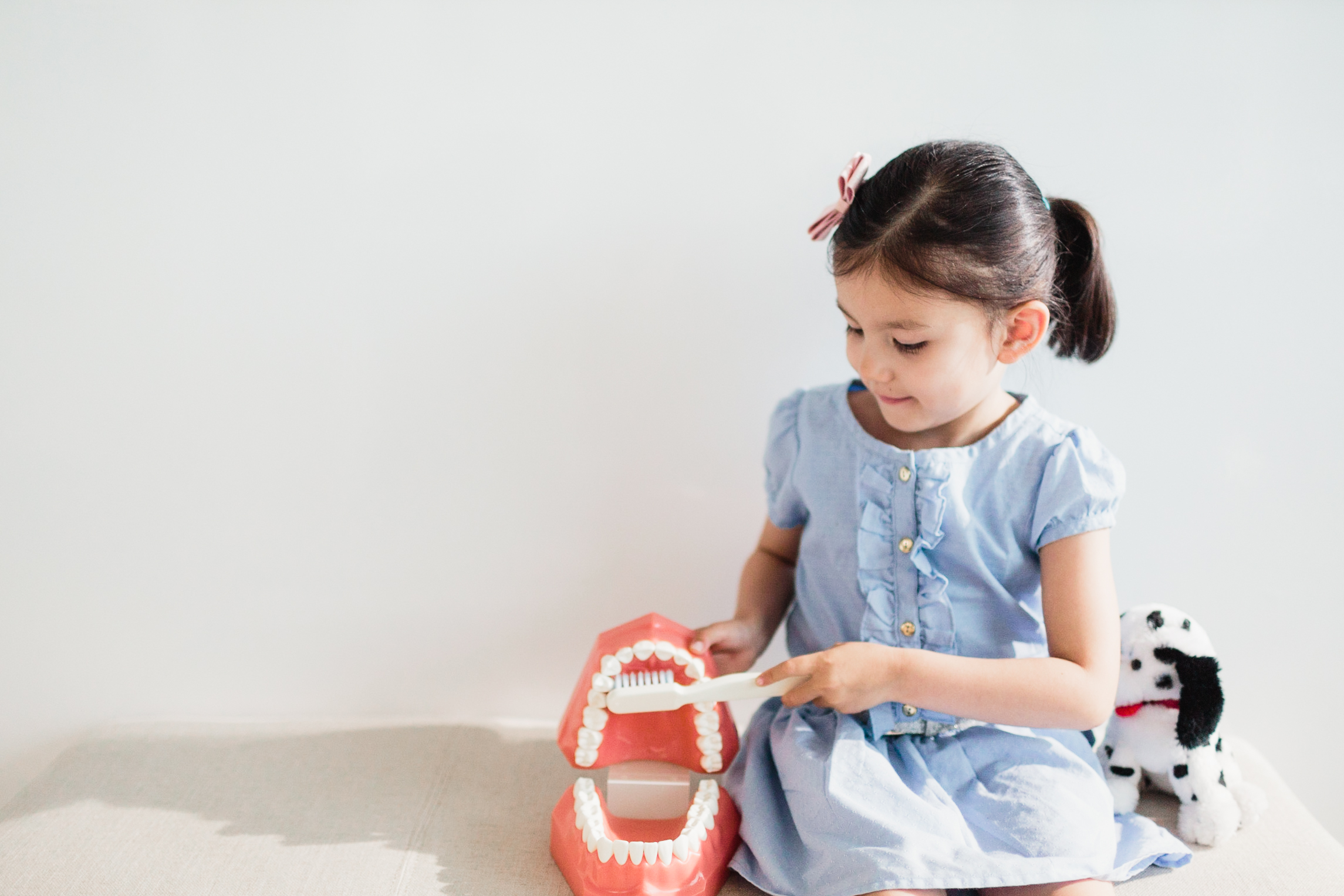How often should children have dental checkups is a crucial parenting question. As a rule of thumb, it’s best to get into a proper child oral healthcare routine from birth. The Canadian Dental Association advises parents to make biannual dental appointments for children, beginning approximately six months after the first tooth emerges. That first tooth will appear at about six months, so it’s up to you to maintain good oral health care until that first visit. Here are some home oral health care tips.
Home Oral Health Care Tips For Children
Without a doubt, it’s essential to always clean your infant’s gums after feeding. This straightforward practice is easy to follow and replicate, To illustrate, you will need to cradle your baby with one arm, then wrap a moistened washcloth around the index finger of your free hand. Now, you can begin to massage the gum tissues gently. With enough practice, you will find that you can clean the gums pretty quickly.
Avoid Leaving Baby Bottles in the Crib
To make it easy to clean the teeth, it’s a good idea to avoid putting your baby to bed with a bottle. Some parents like to prop the bottle in their mouth to allow the baby to feed “at-will.” Try to avoid this habit to prevent early tooth decay. You will see that your baby’s gums are becoming red and swollen at about four months, which may make them more sensitive to gum and teeth cleaning. Give your infant a clean teething ring or a cold, wet washcloth to ease these symptoms. Cold temperatures are soothing, so you may want to chill the teething ring.
What is the Purpose of Dental Checkups?
There are four reasons to establish a relationship with a dentist, even if your child’s teeth are healthy.
First: Creating Familiarity
At Playtime Pediatric Dentistry, we have created a comfortable and inviting space for your child to feel at home. If there is ever a dental emergency, it’s nice to know your child has a familiar place to go for help.
Second: Dental Records
Maintaining meticulous dental records to monitor your child’s dental health and jaw development will make it easier to anticipate any future issues and intervene promptly. Remember, painful dental problems don’t arise overnight.
Third: Education
We will discuss the various options to promote tooth health during the exam: sealants, fluoride supplements, or xylitol. The conversation can also include reviewing and making recommendations for the child’s diet.
Finally: Dental X-Rays
Small cavities can rapidly turn into large cavities, and sometimes dental X-rays are the only way to identify tiny cavities in primary (baby) teeth. Though the child may not feel any pain, if the cavities are left unchecked, then tooth decay can begin, leading to childhood periodontal disease. In this instance, all parents should know how often children should have dental checkups. Click here to book a dental appointment.
The Benefits of Dental Checkups:
The health of a child’s teeth can change relatively fast. Even if the child’s teeth were assessed as healthy just six months earlier, variations in diet or oral habits like thumb sucking or pacifier use could quickly render the teeth vulnerable to tooth decay or misalignment.
The dentist will conduct a visual examination with each checkup and provide a thorough dental cleaning. The dental cleaning will eradicate the plaque and debris that quickly collect between teeth and hard-to-reach places. Professional cleanings are a beneficial tool to supplement a good homecare routine.
A topical fluoride gel or varnish is often applied to teeth after the cleaning. Topical fluoride remineralizes the teeth and staunches mineral loss, protecting tooth enamel from oral acid attacks. Some children are also given take-home fluoride supplements (especially those residing in areas where fluoride is not routinely added to the community water supply).
Finally, the pediatric dentist may apply dental sealants to the child’s back teeth (molars). This impenetrable liquid plastic substance is brushed onto the molars to seal harmful debris, bacteria, and acid. Click here to book a dental appointment.
Important Milestones:
6-12 months of age:
Between six to eight months, your baby will get its first tooth. It is essential to care for their teeth right from the start. Practicing healthy habits can prevent or reduce tooth decay (cavities) in infants and children.
12 to 18 months of age:
By the age of one, your child should have an oral examination by a dentist.
18 months to age 5:
By 30 months of age, all of the primary (first) teeth should have come into the mouth. By age 3, most toddlers should have stopped using the pacifier and sucking their thumbs.
Book A Dental Appointment

As with adults, your child needs to get their teeth cleaned and a dental checkup every six months. Kids should start going to the dentist soon after their first tooth erupts or around their first birthday, whichever happens first. Click here to book a dental appointment.
